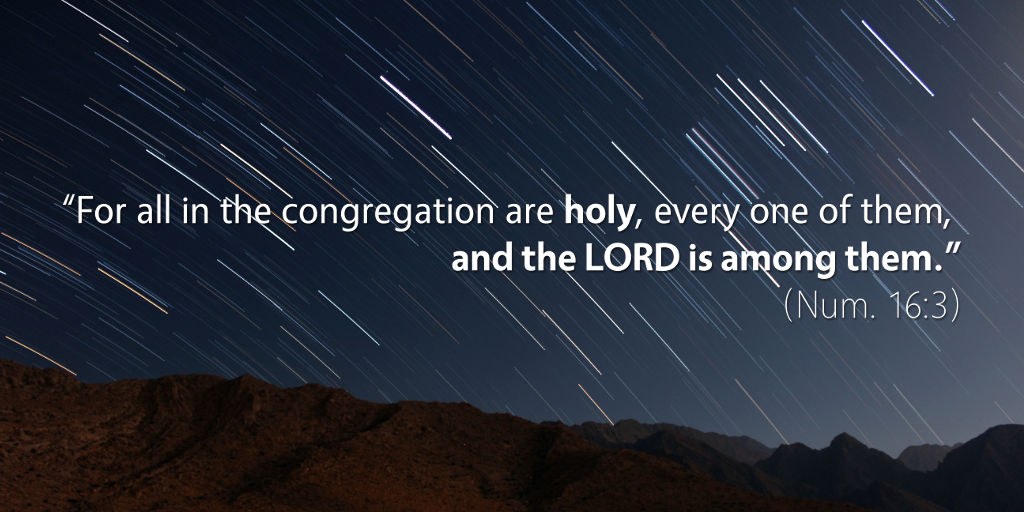Bible Readings for May 8th
Numbers 16 | Psalms 52, 53, & 54 | Isaiah 6 | Hebrews 13
In Numbers 4, Yahweh had given privileges to the Kohathites above all Israel—and even above the other clans of the tribe of Levi, Gershon and Merari—but he had also given them specific limitations. While the Kohathites were never classified as holy, they alone held the responsibility to carry the holy furniture within the tabernacle from campsite to campsite, but they were forbidden from looking upon the furniture under any circumstances, lest they die (Num. 4:15, 17–20).
And yet in Numbers 16:1, we see a mutiny led by none other than a Kohathite, a man named Korah, who challenges the position and authority of Moses directly: “You have gone too far! For all in the congregation are holy, every one of them, and the LORD is among them. Why then do you exalt yourselves above the assembly of the LORD?” (Num. 16:3).
Moses understands that their criticism is leveled not only at him but also at Aaron, who was made holy for the sake of his priestly duties, and then ultimately at Yahweh himself (Num. 16:11). To prove his innocence, Moses tells Korah and the 250 prominent Israelites who joined the rebel to bring near (qarab, Num. 16:17) an incense censer.
This is exactly the situation that Yahweh had warned against, where outsiders (zûr, Num. 16:40) who were unauthorized to approach Yahweh march right into his presence, insisting on their own holiness. Indeed, if anyone ought to have understood this principle, the Kohathites should have, since they were charged with putting to death outsiders who approached the tabernacle (Num. 1:51).
Outraged, Yahweh opens up the earth to swallow some of the rebels alive (Num. 16:28–34), and he sends fire from his presence to consume the 250 who presumed to offer incense in his presence (Num. 16:35). The next day, another 14,700 die as a plague sweeps through a group of people who murmured against Moses that he killed “the people of the LORD” (Num. 16:41) until Aaron himself can make atonement for the people.
From this story, we learn first that Yahweh is deadly serious about the sanctity of his holiness. Anyone who dares to presume upon his holiness is guilty of a wicked crime. Second, we learn that Yahweh’s people—and especially the leaders whom Yahweh has appointed—need to prepare themselves for personal attacks from people who dishonor Yahweh’s holiness.
But more than anything, we learn how distant we are from Yahweh’s holiness. The better we see how far short we fall of the holiness of God, the more clearly we recognize the mercy of Jesus who died to make us holy.
The fact that Jesus came to make you holy doesn’t give you the right to reject authority he has set up over you. Our privileges in Christ should lead us to grateful humility, never to prideful, power-hungry entitlement.
Podcast: Play in new window | Download (5.3MB) | Embed
Subscribe: Apple Podcasts | RSS | More

Scripture quotations are from The Holy Bible, English Standard Version copyright © 2001 by Crossway Bibles, a division of Good News Publishers. Used by permission. All rights reserved.


